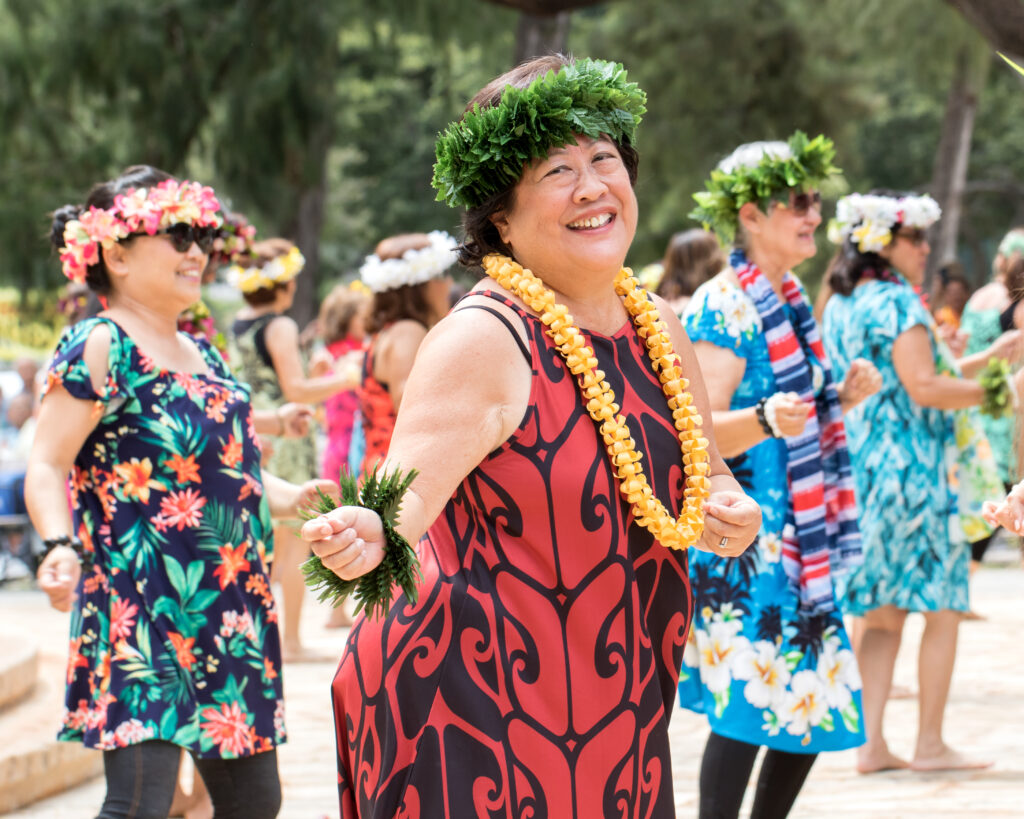Skilled Nursing in Honolulu, Hawaii: Search Near You, How to Pay, Licensing, Local Resources, and Questions to Ask
Skilled nursing facilities in Honolulu, Hawaii, offer expert medical care and rehabilitation services in a setting that blends top-tier healthcare with the beauty of the islands. These facilities provide round-the-clock nursing support, therapy programs, and personalized care plans to help seniors recover and maintain their well-being. While Hawaii ranks 43rd in the nation for assisted living affordability, skilled nursing remains an essential option for those needing higher levels of medical support in a peaceful and culturally rich environment.
Skilled Nursing Facility Communities near Honolulu, Hawaii
Hale Ola Kino By Arcadia
Hon, HI 96826
The Ching Villas
Honolulu, HI 96817
Kulana Malama
Ewa Beach, HI 96706
Hi'olani Care Center At Kahala Nui
Honolulu, HI 96821
Pu'uwai 'o Makaha
Waianae, HI 96792
Pearl City Post Acute
Pearl City, HI 96782
Oahu Care Facility
Honolulu, HI 96826
Kuakini Geriatric Care, Inc
Honolulu, HI 96817
Leahi Hospital
Honolulu, Hawaii 96816
Hale Malamalama
Honolulu, Hawaii 96821

About Skilled Nursing in Honolulu, Hi
In Honolulu, Hawaii, skilled nursing facilities provide 24/7 medical care and rehabilitation services for seniors who need ongoing medical supervision, recovery support, or long-term care. These facilities are staffed by licensed nurses, therapists, and caregivers who offer wound care, medication management, physical therapy, occupational therapy, and assistance with daily activities. Skilled nursing is designed for individuals recovering from surgery, illness, or injury, as well as those with chronic conditions requiring specialized care. Many facilities in Honolulu also incorporate holistic and culturally sensitive approaches, ensuring residents receive compassionate, high-quality support in a setting that respects their values and traditions. Whether for short-term recovery or long-term residence, skilled nursing facilities play a vital role in maintaining the health and well-being of seniors on the island.
Considerations when looking for Senior housing in Honolulu, HI
There are 23 Skilled Nursing Facilities found within 10 miles of Honolulu, HI. The estimated population is 989,408 with 20.2% of that number being ages 65 and older. In Honolulu, the summers are hot, oppressive, and dry; the winters are comfortable and humid; and it is windy and mostly clear year round. Over the course of the year, the temperature typically varies from 68°F to 87°F
Cities near Honolulu, Hawaii
- Kailua – Northeast, ~12 miles
- Kāne‘ohe – Northeast, ~10 miles
- Pearl City – West, ~11 miles
- Waipahu – West, ~15 miles
- Ewa Beach – West-Southwest, ~17 miles
Pricing and How to Pay for Skilled Nursing
Paying for senior care depends on several factors. On average, residents can expect to pay $14,828 per month for skiled nursing services. These fees encompass personalized care, engaging activities, and comfortable accommodations, ensuring a fulfilling retirement experience. Keep in mind these costs may fluctuate depending on factors such as location and facility amenities.

Paying for Senior Living and Care will vary depending on a few factors. For instance, the level of care needed; the income and savings of the resident; the state and location of the community; or if the resident is a veteran. In the United States there are over 400 programs that may offer some monetary relief for senior care, but often the majority of costs are covered by private funds and family assistance. These funds come from our Federal, State, and Local Governments.
It is important to take your time when exploring payment and coverage options.
Private pay – YES:
- Many families pay for assisted living with private funds.
- Private pay can be a combination of retirement funds, personal savings, and pension payments.
- Family members may contribute funds to pay for assisted living or other senior housing and care.
Medicare -MAYBE:
Medicare will TYPICALLY cover Skilled Nursing (SNF) care ONLY under these factors:
- People 65 years and older and individuals with end stage renal disease are eligible for Medicare benefits, no matter their income.
- Coverage is meant for people in need of short-term care.
- The person has Medicare Part A, and has available days left in their benefit period. The person has a qualified hospital stay. (3 consecutive midnights or more)
- The individual must enter SNF within 30 days of leaving the hospital.
- The person’s doctor has ordered inpatient services at a skilled nursing facility.
- The individual must need and receive the skilled care daily. The care provided must be care that the person can only receive in a SNF.
- The person needs skilled services because of an ongoing condition or a new condition that started while in a SNF for treatment of an ongoing condition.
- The skilled services must be reasonable and necessary for the treatment of the condition.
- You must receive the care in a Medicare certified SNF.
Medicaid – MAYBE:
Medicaid can be a payer source if the patient needs both care and has a financial hardship based on the individual state criteria. Eligible participants include: low-income adults, elderly adults and people with disabilities. The program is funded jointly by each state and the federal government; and national guidelines are in place do decipher how states must spend Medicaid money, but with allowances toward the guidelines. Every state has their own individual Medicaid assistance program. Each state determines what levels of care will be covered by Medicaid, who is eligible, and how much the state will reimburse the care community.
- Skilled nursing falls under Medicaid’s Nursing Facility Services.
- People who are eligible for Medicaid must meet the state criteria for skilled nursing care.
- The state of residency must abide by federal law and regulations when setting their skilled nursing care requirements.
- The patient meets the state guidelines for income and asset limits.
If you are unsure whether you qualify for Medicaid, you should apply. You may be eligible depending on your household income, family size, age, disability and other factors.For a clearer understanding on coverage contact your State Health Insurance Assistance Program.
Long-term Care Insurance – MAYBE:
Long term care insurance is a great way to pay for assisted living, and planning ahead is important when considering how to pay for senior housing and care. Nearly 75% of people over the age of 65 will require long-term care services at some point, so naturally, buying into long-term care insurance when a person is in their 50s and 60s is the most common time to do so.
- Long-term care insurance helps cover the costs of chronic medical conditions.
- Individuals and couples with the ability to pay into long-term care insurance have the advantage of a head start in allocating funds for senior care.
Veteran Aid and Assistance – MAYBE:
This benefit is available to some military veterans and surviving spouses who live in an assisted living community and those who have in-home care.
- There are specific guidelines, but a veteran may qualify for as much as $2,050 each month.
- A veteran with a sick spouse may be eligible for $1,600 per month.
- If a veteran has passed, their surviving spouse can qualify for $1,300 per month.

Local Hospitals and Healthcare Providers in Honolulu, HI
The Queen’s Medical Center
- Address: 1301 Punchbowl Street, Honolulu, HI 96813
- Phone: (808) 691-1000
Straub Medical Center
- Address: 888 South King Street, Honolulu, HI 96813
- Phone: (808) 522-4000
Kuakini Medical Center
- Address: 347 North Kuakini Street, Honolulu, HI 96817
- Phone: (808) 536-2236
Kaiser Permanente Moanalua Medical Center
- Address: 3288 Moanalua Road, Honolulu, HI 96819
- Phone: (808) 432-0000
Tripler Army Medical Center
- Address: 1 Jarrett White Road, Honolulu, HI 96859
- Phone: (808) 433-6661
Questions to ask a skilled nursing facility
- Is the facility licensed?
- Has the facility’s license ever been revoked?
- Is the facility Medicare/Medicaid certified?
- What types of insurance is accepted?
- Are all specific medical needs able to be met?
- What services are offered?
- What is the rate for basic care?
- Are any reviews available to be seen by the public?
- Are protocols in place to ensure healthy, balanced meals?
- What if an individual has specific dietary restrictions, can they be met at the facility?
Additional questions and inquiries to ask skilled nursing facilities
- What should a new resident (patient) bring with them?
- What is the difference between skilled nursing and assisted living?
- What happens in case of an emergency?
- Can the family pet visit the resident?
- What is the level of privacy?
- What are the available social activities?
- What is the hours for family visits?
- Can patients request special meals for dietary needs?
- Are skilled nursing facilities connected to hospitals?
- How big are the rooms?
- What are the training requirements of skilled nurses?
Resources and Links – Hawaii
Hawaii Executive Office on Aging The Hawaii ADRC helps older adults, individuals with disabilities, and family caregivers find options for long term supports and services available to them in the State of Hawaii.
Alu Like Inc. ALU LIKE, Inc. has a comprehensive range of services and activities to fill identified needs in the Native Hawaiian community, including community economic development, business assistance, employment preparation, training, library services, educational and childcare services for families with young children.
Hawaii State Health Insurance Assistance Program (Hawaii SHIP) Provides statewide health insurance information, counseling, and referrals to individuals 65 years or older or with disabilities, their families, caregivers, and soon-to-be retirees. Medicare-certified volunteers provide counseling assistance and presentations at no charge to the public.
Legal Aid Society of Hawaii As the state’s oldest and largest non-profit, public interest law firm with offices statewide- Legal Aid helps ensure justice and fairness for all by providing civil legal aid to the most vulnerable in our society.
Long Term Care Ombudsman Program The Long-Term Care Ombudsman (LTCO) program was established by federal and state statutes. The LTCO identifies, investigates, and resolves complaints that are made by, or on behalf of residents, and related to action, inaction, or decisions that may adversely affect the health, safety, welfare, and rights of residents of long term care facilities such as nursing homes, adult residential care homes, assisted living facilities, and other long-term care settings.
Eldercare Locator This is a great resource to search for specific care in specific counties and cities. This database is a nationwide resource that connects older Americans and their caregivers with trustworthy local support resources. Connect with services such as meals, home care or transportation, or a caregiver education or respite from caregiving responsibilities. The Eldercare Locator is a public service of the Administration on Aging (AoA), an agency of the U.S. Administration for Community Living.
Medicare provides a search feature to find & compare providers near you, most senior housing and care providers are included on CareAvailability.com. Find & compare plans in your area. Determine if you qualify for premium savings
Medicaid offers information on how to apply for Medicaid, eligibility criteria, links to local state offices, and additional resources
The Alzheimer’s Association is the leading voluntary health organization in Alzheimer’s care, support, and research. Whether you are living with Alzheimer’s or caring for someone with the disease, information and resources are available.
Search other areas for skilled nursing
Not finding what you’re looking for? Take a look below.
